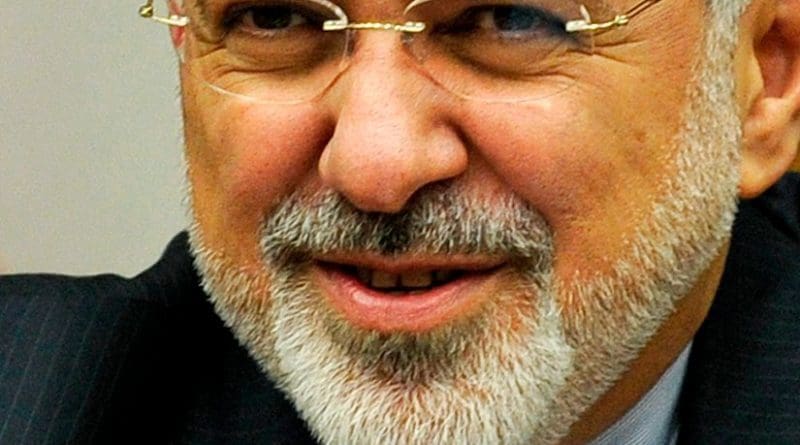Iran’s Middle East Policy Subsequent To Nuclear Agreement – Analysis
By Iran Review
By Saeid Jafari*
Following the conclusion of Iran’s nuclear deal, the country’s foreign policy has more time to deal with various regional issues. Nuclear talks to which Iran’s diplomatic apparatus was a hostage for over a decade are over and the Islamic Republic, like any other actor in the field of international relations, can now redefine and regulate its priorities on the basis of relations with its neighbors.
Shortly after the conclusion of the Vienna agreement, Iran’s Foreign Minister Mohammad Javad Zarif chose Qatar, Kuwait and Iraq as destinations for his first round of regional tours where he talked about the need to improve and expand Iran’s relations with the neighboring countries. Friendly relations between Tehran and Baghdad have continued in the past years, but the kind of official welcome accorded to Iran’s foreign minister in Doha and Kuwait City indicated a new beginning in Iran’s relations with its Arab neighbors along the southern rim of the Persian Gulf. Both Kuwait and Qatar have stressed the need to develop relations with Iran. However, regardless of how cordial are Iran’s relations with Oman, Iraq, Kuwait and Qatar, any impartial observer knows that this is not the case about relations with Bahrain, the United Arab Emirates, and Saudi Arabia and Tehran has been experiencing its most tense relations with these three countries during the past years.
Since two years ago, Saudi Arabia has ignored signals sent by Iran for the improvement of bilateral relations. Since his first day in office, Iran’s President Hassan Rouhani has talked about the special importance that his administration attaches to relations with its Arab neighbors, especially Saudi Arabia.
However, Riyadh has been expecting Tehran to make basic changes in its Middle East policy. Those changes included reduction of Iran’s role in Syria, Lebanon and Iraq; an issue that has never been accepted by the Islamic Republic.
Overt and covert efforts made by Saudi Arabia to cause failure of negotiations were evident throughout the nuclear talks. Those efforts ranged from a visit by then Saudi foreign minister, Saud al-Faisal, to Vienna during nuclear talks in November 2014, to unfriendly remarks made by the country’s new Foreign Minister Adel al-Jubeir about the threat that Iran poses to the region. Tehran, however, has been able to get rid of a prolonged dispute and its Arab neighbors should have naturally reached the conclusion that Tehran poses no military threat to them because if this was the case, the United States would have never reached this agreement with Iran.
In two rounds of regional tours, Zarif traveled to almost all countries in the Middle East save for Saudi Arabia, Bahrain and the United Arab Emirates. He meant to assure all neighboring countries of Iran that the nuclear deal will only pave the way for the expansion of Tehran’s regional cooperation and is not supposed, as some parties claim, to open a new chapter in Iran’s hegemony in the Middle East. Following the conclusion of the Vienna agreement, Saudi Arabia emphasized that if Tehran wanted to cause problems in the region, it would face powerful reaction of Riyadh. Despite all these saber-rattling, Tehran considers stability and peace in the Middle East region as the utopian goal of its foreign policy approach to this region. Therefore, although Saudi Arabia continues its adversity toward Iran and has not been able so far to accept changes that have taken place in regional equations in the past years, including in Syria, Iraq, Lebanon and even Yemen, Iran is by no means willing to fan the flames of tension with the big brother of regional Arab states.
In other words, the national interests of the Islamic Republic require that not only peace should be restored to Syria, Iraq and Yemen, but even instability and unrest in Saudi Arabia should be also prevented. As a result, perhaps after the lapse of some time and continuation of, at least, weakly effective efforts of Riyadh to change the playground, Saudi rulers would reach the conclusion that they better concede to alterations in regional equations and opt for interaction with Iran. During recent years, Saudis have made strategic mistakes in their foreign policy toward the Middle East as a result of which their past friends have become their enemies. This is the case about Iraq, Syria, Lebanon and Yemen. In the meantime, efforts made by Riyadh to change regional equations have proven ineffective and have only caused the country to suffer serious costs in terms of funds and credibility. Now, after the lapse of four years, there are rumors about the possibility of direct talks between Riyadh and Damascus. So, it is still possible that Al Saud would finally come to grips with the regional realities, understand Iran’s liberated capacity following the nuclear deal, and trust Tehran’s goodwill for the preservation of regional peace and stability, and in doing this, put aside past animosity and welcome a new chapter of regional relations with Tehran.
* Saeid Jafari
Expert on Middle East Issues

